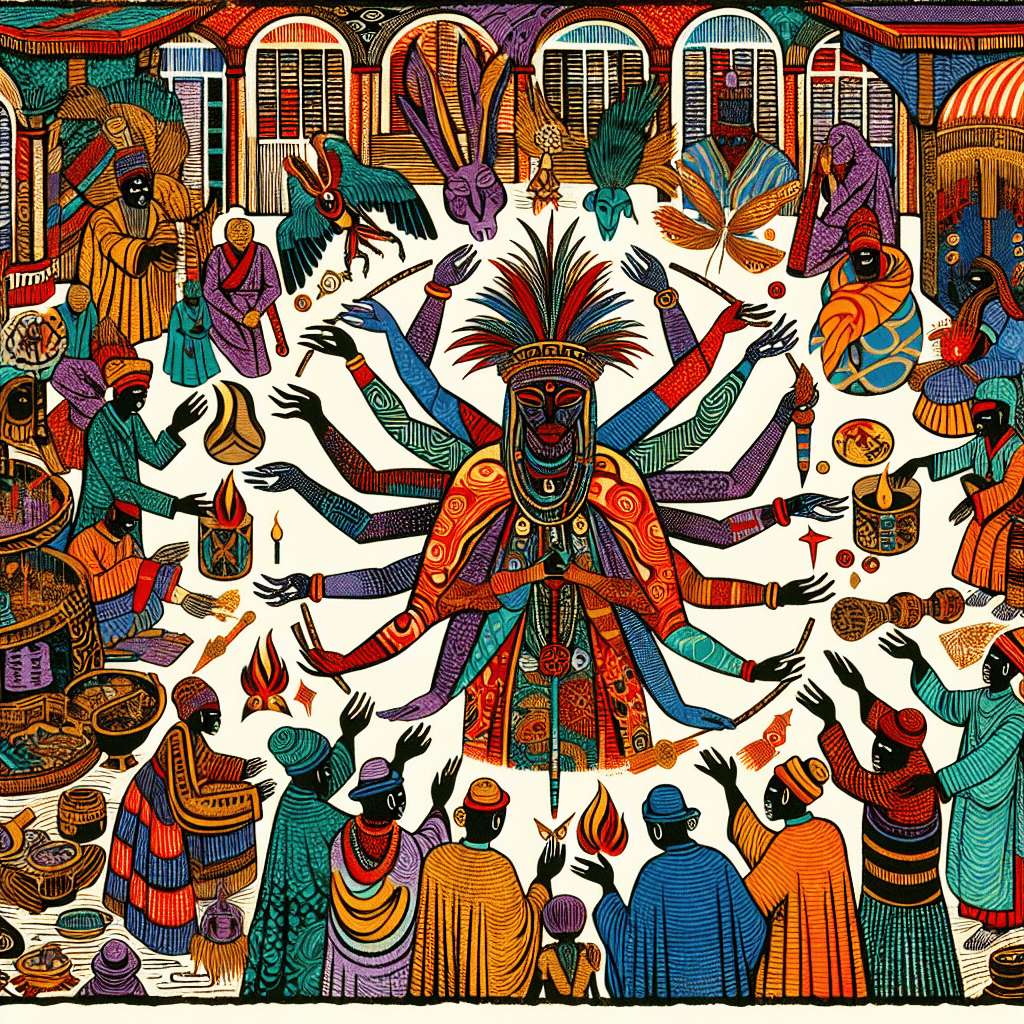

syndu | Dec. 12, 2024, 7:39 a.m.

Voodoo, a profound spiritual belief system with its roots deeply embedded in West African traditions, forms an essential part of the cultural and social identity of Haiti. As a unique blend of religious practices, Voodoo transcends mere belief, serving as a cornerstone for community, unity, and resilience in Haitian society.
Voodoo's inception in Haiti can be traced back to the 16th century, brought by enslaved Africans from different ethnic groups, most predominantly the Fon and Ewe peoples from what are now Benin and Togo. Despite the harsh realities of slavery, these communities preserved and adapted their spiritual practices, leading to the evolution of what is now recognized as Haitian Voodoo. It is a religion that intricately weaves African spiritual traditions with elements of Catholicism imposed by French colonial forces, a practice known as syncretism. This adaptation allowed them to covertly maintain their spiritual beliefs under the guise of Catholic rituals.
Today, Voodoo is intricately interwoven into the fabric of Haitian daily life. It influences everything from art and music to community leadership and social norms. Voodoo ceremonies, rich with music, dance, and art, are not merely religious observances but are vibrant cultural events that reinforce community cohesion and cultural heritage. Practitioners, guided by the adept leadership of Voodoo priests and priestesses (Houngans and Mambos), seek guidance and healing, bridging the physical world with the spiritual.
"Voodoo is not just a religion; it is a cultural cornerstone that has shaped the nation's history, politics, and social fabric."
Voodoo's influence extends into vital chapters of Haitian history, notably the Haitian Revolution (1791-1804) that led to the island's independence. The religion provided a unifying ideology of resistance and empowerment among the enslaved population. A pivotal moment was the Bois Caïman ceremony in August 1791, considered the spiritual rallying point for the revolution. This event exemplifies Voodoo's role as a powerful catalyst for change and resistance.
Despite facing centuries of persecution, especially under colonial and foreign influences that branded it as malevolent, Voodoo endured as a cohesive force in Haitian society. Its role in achieving Haitian independence exemplifies its profound cultural significance and the enduring spirit of the people. Voodoo remains a source of national pride and cultural identity, symbolizing resilience and freedom.
The impact of Voodoo on Haitian culture is a testament to its vibrant, dynamic, and integral role in the community. As both a spiritual and cultural practice, it illustrates the resilience of cultural identity in the face of adversity. Understanding Voodoo offers valuable insight into the strength and unity of the Haitian people, highlighting their rich cultural legacy and contribution to the broader narrative of resistance and independence.